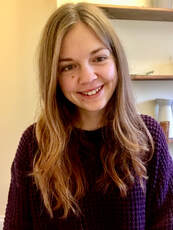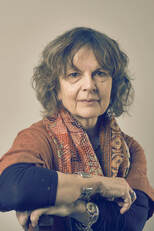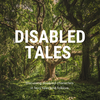CALL FOR ABSTRACTS
Disability and Fairy Tales:
Keeping the magic, confronting the stigma
The aim of this symposium is to explore the nuances of disability representation in fairy tales, interrogating how writers, storytellers, publishers, teachers and academics use such tales to empower disabled people and preserve the disabled characters that have survived through generations. We’re also interested in the limitations of traditional fairy tales and the ways in which retellings and reinterpretations can challenge the negative or outdated tropes of the genre.
We invite the submission of abstracts for presentations or creative performances (e.g. poetry readings or storytelling) that explore traditional fairy tales or contemporary retellings that centre disability, whether that be sensory, physical, learning, or neurological.
If accepted, your presentation or performance must be up to 20 minutes long and the symposium will take place online using Zoom in February 2025 (time and date TBC).
Please send an abstract of 300-500 words to [email protected], by 30th September 2024 detailing the title of your presentation or performance and outlining what you intend to cover.
We aim to finalise the symposium programme by November 24th 2025 and will respond to every submission we receive.
We look forward to hearing from you!
We invite the submission of abstracts for presentations or creative performances (e.g. poetry readings or storytelling) that explore traditional fairy tales or contemporary retellings that centre disability, whether that be sensory, physical, learning, or neurological.
If accepted, your presentation or performance must be up to 20 minutes long and the symposium will take place online using Zoom in February 2025 (time and date TBC).
Please send an abstract of 300-500 words to [email protected], by 30th September 2024 detailing the title of your presentation or performance and outlining what you intend to cover.
We aim to finalise the symposium programme by November 24th 2025 and will respond to every submission we receive.
We look forward to hearing from you!
Symposium organisers:
Beth O'Brien

Beth O’Brien is the founder and editor of Disabled Tales. She is an English Literature BA and Creative Writing MA graduate from the University of Birmingham. She is also the author of four adult poetry books, including I Chase Lightning (Black Pear Press, 2022). Having been born visually impaired and with an upper-limb difference, Beth has a long-standing interest in the representation of disability in literature and is currently studying for a PhD in creative writing funded by Midlands4Cities, researching the representation of disability in contemporary fairytale retellings. Her debut novel, Wolf Siren, is a loose Red Riding Hood retelling with a visually impaired protagonist, which will be published by HarperCollins Children’s Books in March 2025.
Professor Nicola Grove

Nicola qualified as an English teacher, then went on to train as a speech and language therapist. She has over 45 years’ experience working with children and adults who have communication, language and learning difficulties. She pioneered ways of using literature, poetry and story in special schools, and she was one of the earliest practitioners of multisensory storytelling. She held academic posts at the London Institute of Education, and City University, before leaving to set up and lead the first UK arts company of storytellers with intellectual disabilities, Openstorytellers ( www.openstorytellers.org.uk.) Her research interests include disability in folktales, access to literature, personal narratives and small stories, sign language and augmentative communication. She has been collecting folktales about people with learning disabilities and autism for more than 20 years, traveling in South Africa, Japan, Canada and consulting widely with folklorists and storytellers. She is currently Professor for Profound and Multiple Disabilities at the Rix Centre, University of East London, and a member of the Social History of Learning Disability group at the Open University.

